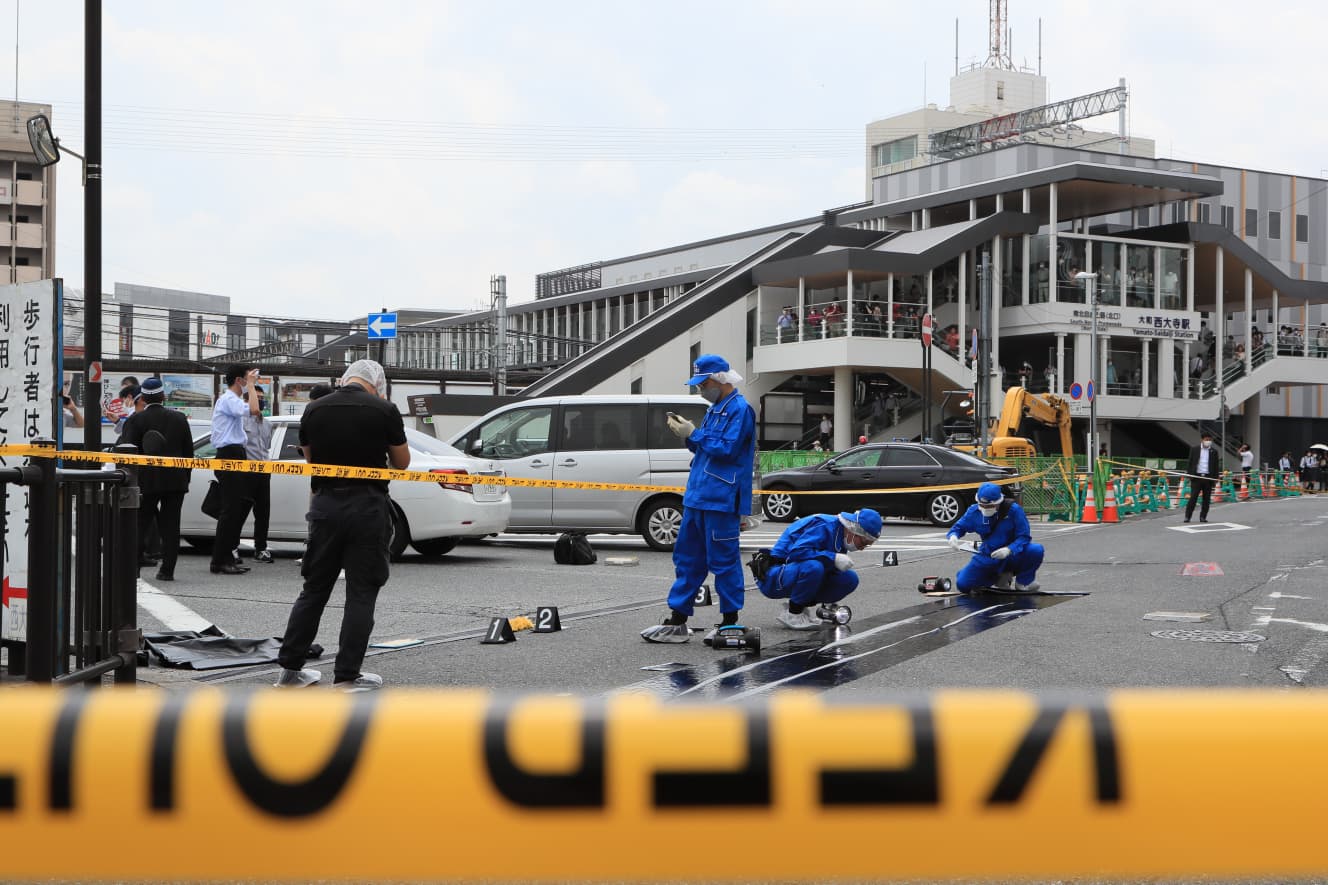Inadequate Security, Motive… “Possibility of Acquittal” of Yamagami Suspect in Abe’s Shooting

From the rear of the building, which had been cleared, the man approached the former prime minister about 8 meters and fired the first shot. He then took five steps forward due to the lack of protection, and fired a second shot three seconds later from a distance of about 5 meters. The bullet made a large hole in the former prime minister’s chest and took his life.
It has been more than 10 days since the tragic shooting death of former Prime Minister Shinzo Abe (67 years old) during a street speech in Nara City. Gradually, the full details of the crime are being revealed.
The gun used in the incident was a hand-made gun about 40 cm long and 20 cm high, shotgun-style, firing six bullets from two metal pipes, and ignited by a battery. The gun is so powerful that even if you fire it at a concrete wall at a distance of nearly one meter, it will leave a large hole in the wall.
Bankruptcy due to mother’s religious beliefs
The arrested suspect, Tetsuya Yamagami, 41, is a former member of the Maritime Self-Defense Force and is said to have knowledge of guns, and he gave a nonchalant explanation of the gun he used in the crime to the police. As for his motive, he said the following.
I thought it was Mr. Abe who spread the group that broke up the family throughout the country. It was (Abe’s grandfather) Nobusuke Kishi who invited the group to Japan, and he began targeting his grandson, Abe.”
The “organization” that Yamagami refers to is the “Family Federation for World Peace and Unification (former Unification Church). His mother, 69, joined the church about 30 years ago. It is known that she donated at least 100 million yen to the church and went bankrupt in 2002. The family’s life became destitute, and the suspect, Yamagami, attempted suicide in January 2005 while serving in the Maritime Self-Defense Force. It seems that he had a considerable grudge against the former Unification Church.

Suspecting a relationship with the former Unification Church, Yamakami committed the unprecedented murder of the former prime minister. The date of his trial has not yet been set, but we wonder what kind of sentence he will receive. Lawyer Hirotaro Kato, an expert on the case, explains.
The key point is whether or not the suspect had the intention to interfere with the election, which is the basis of democracy. A crime that threatens the very foundation of the nation is a serious crime punishable by death. A case in point would be the Nagasaki mayoral shooting that took place in April 2007. Mayor Kazunaga Ito was shot and killed by a gangster during the mayoral election.
The first trial court sentenced him to death for “shaking the foundation of democracy. However, on appeal, the court ruled that the motive was a grudge against the victim and not election interference itself, and he was sentenced to life imprisonment (the Supreme Court rejected the appeals of both the prosecution and the assailant, making the sentence final).
The motive Yamakami has stated this time is trouble with a religious group that his family had joined. In other words, it cannot be said to be a challenge to democracy and is likely to be judged as a personal grudge. The prosecution will likely seek the death penalty, but as in the Nagasaki mayor shooting case, the argument will not stand.”
Impact of Lack of Security on Sentencing
The next point to consider is whether there were any casualties other than Prime Minister Abe. Or was there a possibility of such casualties? Lawyer Kato continued.
For example, if any SP (security police) or Nara Prefectural Police guards were injured, they would be charged with attempted murder and the suspect would face more serious penalties. This time, however, no one other than former Prime Minister Abe was directly killed or injured by the shooting; it is fortunate that none of the SPs were injured, but on the other hand, it must be said that this is because there were many deficiencies in the security system on the day of the incident.
This allowed the suspect to easily approach behind the former PM and fire two shots. They were able to accomplish their goal without harming anyone else. What will be at issue in the trial will be the charge of murdering a single former Prime Minister Abe. No matter how great the social impact of the case and the victim is the most important dignitary, the preciousness of human life is equal. In a case involving the murder of an individual, it is unlikely to carry the death penalty.”
The defense is expected to argue that Yamagami is not responsible for the murder. If they are convinced, he could be acquitted of the crime. However, Mr. Kato believes that this is highly unlikely.
It would be very difficult to say that Yamagami is incapable of responsibility,” he said. He planned to prepare a gun with a high killing capability by researching the schedule of former Prime Minister Abe’s speeches, and he committed the crime with a sense of guilt, saying that he should have targeted the head of a religious organization. The possibility of acquittal is very low. Considering the circumstances, he will probably be sentenced to life imprisonment.
The motive for the crime was based on a personal grudge, the security system was inadequate, and the case was well planned. …… Various factors will be considered in the sentencing of a serious case that took the life of a former prime minister.
Photo by: Kei Kato Takuma Arimura